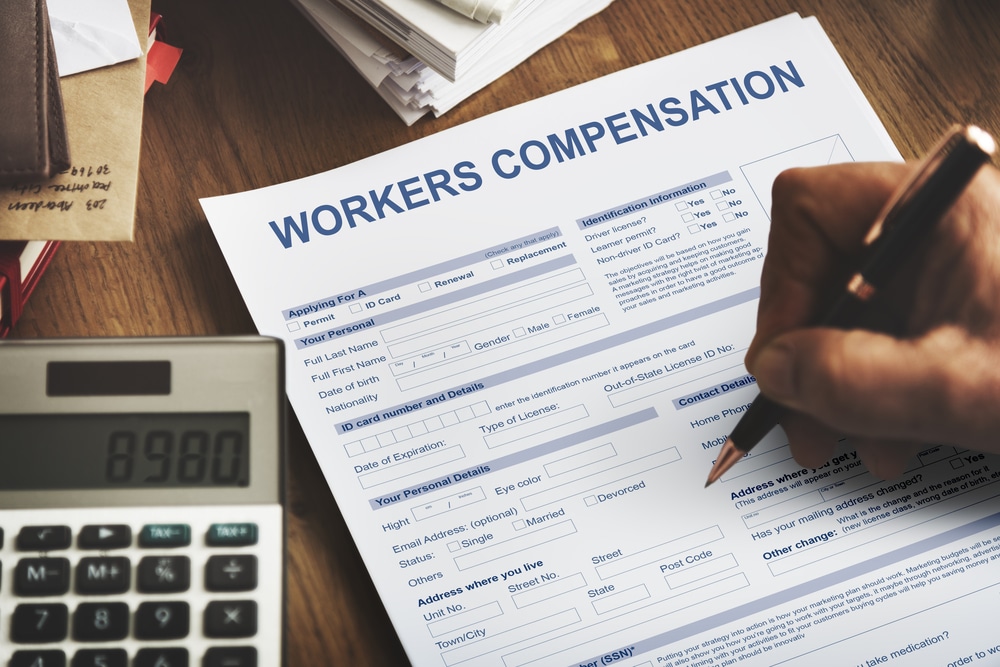Workers’ compensation insurance is a state-mandated program that provides benefits to employees who suffer an injury while on the job. Most states require employers to carry this insurance, but some do not. In those cases, employees can still file for workers’ compensation if their employer voluntarily purchased such coverage.
Luckily for those who live in San Diego, their mental health is covered under their worker’s compensation insurance. To establish and treat your health issues, you can seek immediate San Diego mental health treatment to help you during your compensation claim process. Workers’ comp will pay medical expenses and lost wages if you acquire injuries in a workplace accident. It covers injuries that occur during your employment—even if your employer did not intend for you to be at risk of being hurt.
Psychological Or Psychiatric Injury Defined

When it comes to the mental health of workers, a psychological or psychiatric injury is defined as an illness or injury resulting from a mental stressor. It can include depression, anxiety, post-traumatic stress syndrome (PTSD), and other psychological issues.
Psychological injuries are covered by workers’ compensation in most states and provinces unless they’re caused by an outside factor (such as an accident). In this case, it’s essential to understand how your state defines the ‘outside factor.’ For example, if you experience PTSD after witnessing your coworker being struck by lightning at work but taking on a new job doesn’t qualify as an outside factor, then you may still be eligible for benefits even though the trauma occurred at work rather than on your own time.
Not All Mental Health Issues Qualify For Compensation

Not all mental health issues are covered. The foremost requirement when making such a compensation claim is, of course, the proof of causality. And even with clinical evidence, you might have trouble, especially if you don’t have help, in proving that your job was responsible for the injury. In some countries and states, there are lists of jobs considered highly stressful and those that can be awarded compensation without that much friction in the process. Populating this list to a larger extent are first responder jobs such as police officers, emergency medical staff, trauma care employees, firefighters, etc., with a high risk of suffering from work-related stressors.
When it comes to your mental health, there are several things that you should know:
- Generally, depression and anxiety are not covered by workers’ compensation, even if they arise from a work-related event. That is because depression and anxiety don’t always have an identifiable cause, making it difficult for your employer or insurance company to prove that they were triggered by something related to your job.
- Some mental health issues may fall under workers’ compensation depending on the circumstances of the injury. If you’re injured while on the job and it results in some form of post-traumatic stress disorder (PTSD), you may be eligible for benefits based on those symptoms alone, even if they didn’t start until after leaving work. However, this doesn’t mean that other forms of PTSD aren’t valid claims. Instead, it means that your employer or insurance company must prove how much time off work is attributable solely to their negligence instead of other factors (like genetic predispositions).
- Some companies offer supplemental insurance coverage plans for employees with preexisting conditions like depression or anxiety disorders. It will pay out regardless of whether or not these conditions occurred during employment at the said company. However, these programs come with strict terms and conditions, so make sure yours fits before signing up.
You will likely receive workers’ compensation benefits if you suffer from mental health issues due to work-related stress. But generally, mental health claims can be challenging to prove and typically involve consulting an expert specializing in psychology or psychiatry. If your claim is denied, it will be up to you to hire an attorney or expert witness to reassert what you think you deserve.
Justify A Work-Related Psychological Condition

To justify a work-related psychological condition, you must prove that:
- The condition was caused by work. It means your illness or injury arose in the course of your job. For example, if you were diagnosed with PTSD after being harassed by a coworker, even though you didn’t have it before, it’s considered a mental health concern that arose from work. It could also be that you suffered from anxiety all your life but only started having panic attacks after starting a new job and can pinpoint the stressors that come with your line of work that might have exacerbated your condition. It could also fall under work-related injuries since your job played a significant role in initiating or worsening the mental health issue.
- The condition is disabling. A disability is an impairment that prevents one from engaging in substantial gainful activity (SGA). If you suffer from depression or anxiety and lose your ability to earn and the root of your illness stems from work, you could be due for worker’s compensation.
- The condition is permanent. Most psychological injuries can improve over time and respond well to medication. However, some cases may require additional care beyond what can be provided through regular therapy sessions over several weeks or months post-injury (in which case they could still qualify as ‘permanent’). If your condition is that severe, the amount of money you claim should reflect that, as you’d have been significantly affected, emotionally and financially. With your doctor’s help, be clear on how long you expect to be out of work if at all, you will return to work.
To prove this, you should justify as much as possible that your injury resulted from a workplace incident; state the culmination of the incident, the nature of the job, and the work environment, among other things. It might include:
- Visiting a clinical psychologist or doctor to get a medical diagnosis and treatment for your condition is best. During this process, you should file everything from what you were diagnosed with to prescriptions and other expenses surrounding your treatment.
- Did the doctor attribute your illness to a single or cumulative incident that happened or continues to happen at work? For example, if you work as an emergency medical technician, then your mental health might take a knock from the incessant exposure to badly injured people. If this is the case, keep the results as evidence during your compensation claim.
After providing evidence of causality, you may now furnish additional evidence to support your assertion that you are going through mental health issues. It can take several forms:
- A journal entry of your experience
- An email from a colleague about something stressful that happened at work
- A screenshot of an angry comment left on Facebook by someone who works with you
Compensation Amounts Vary
The type of compensation you receive will depend on the severity of your injury and the type of injury or illness you suffered. For example, if your injuries are minor and you can return to work quickly, your employer may not have to pay you as much in workers’ comp benefits. On the other hand, if you have a severe injury that causes long-term harm or results in permanent disability, then the insurance company may need to pay more out in compensation benefits.
The amount of compensation varies from one case to another because each case is unique, and so are its circumstances. The length of time off work can also affect how much an employee receives for their injuries at workers’ comp hearings.
Benefits Of Filing For Workers’ Compensation

The benefits of filing for workers’ comp for mental health issues include:
- Medical Bills. You can receive compensation for medical bills incurred from your illness, including treatment related to your mental health.
- Lost Wages. If you cannot go to work because of work-induced anxiety, PTSD, depression, or other mental health challenges, you can recover lost wages while on leave to recover from the incident. It includes future lost income if it’s proven that your injury will significantly affect your ability to earn money in the future (known as permanent disability).
Permanent Disability/Loss Of Use. In some cases, the trauma and general harm caused by a specific incident or a specific series of incidents are irreversible, causing one to live with the consequences forever; this is known as permanent disability or loss-of-use (LOU). In these situations, workers’ comp will provide payment based on how much money is lost through decreased ability over time. For example, if a worker loses one leg due to a car crash and must walk with crutches and such a condition has caused them to become depressed, they would likely receive compensation for their inability to work. The compensation claim will be based on how much money they would make if they could walk normally again and thus could continue working as before but with an impairment instead.
Conclusion
If you’re experiencing a mental health issue as a result of work, it may be worth your while to look into workers’ compensation benefits. If you qualify, these benefits can help pay for your treatment and other expenses related to your condition. You can also be reimbursed for any lost wages that result from time off work due to an injury or illness. As a rule of thumb, try to get an attorney to help you navigate the process and prove causality beyond doubt to get the compensation you deserve.

